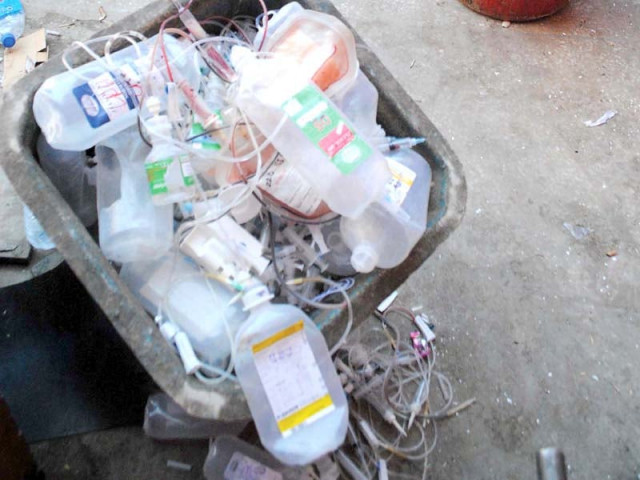South Asian cities conference: Lahore’s dirty business is inspiring other Punjab cities
Today Lahore's nine million people generate nearly 5,500 tonnes of solid waste per day.

Today Lahore's nine million people generate nearly 5,500 tonnes of solid waste per day. PHOTO: EXPRESS/FILE
Lahore’s challenge, at one point in time, was figuring out how to simply weigh the amount of waste it was producing. Figuring out what to do with it would come much later.
This was the situation when the Lahore Waste Management Company (LWMC) took over in 2010. “There was no reliable way of weighing the waste being picked up from across the city,” said its MD, Waseem Ajmal Chaudhry, while speaking at the South Asian cities conference here on Sunday.

Then the company signed a seven-year contract worth Rs320 million with a Turkish municipality company to help build its capacity. At that point the LWMC had 10,000 sanitary workers under the district government and only two engineers.
Today, it can say that Lahore’s nine million people generate nearly 5,500 tonnes of solid waste per day. During the three years that the LWMC has been running, it has acquired 473 vehicles to collect and transport solid waste, created 550 teams of sanitary workers, introduced mechanical sweeping vehicles along major roads, real time tracking of collection vehicles and provided proper uniforms with gloves and safety equipment to sanity workers.
“The success of this model can be gauged from the fact that the Punjab government has given a go-ahead to start it six other cities, including Sialkot and Rawalpindi,” said Chaudhry. Other goals for the next few months include establishing a landfill on 52 hectares, setting up a compost plant and a waste-to-energy plant.
After this presentation, Maryam Masood, a PhD student at the University of Cambridge, provided details on the informal waste sector in Lahore. “Nearly 25,000 to 30,000 people in the city are directly connected with the waste collection system,” said Masood. Her research shows informal waste collectors such as pickers, scavengers and small scrap shop owners at times earn even more than what formal waste collectors make. “The informal sector is an important part of the whole system as they are reducing the burden on the city administration.”
This is why Masood has stressed the need to integrate informal collectors with the main system to make it more efficient.
Other presenters at the sessions included Karachi Organic Energy Limited CEO Muhammad Ali Saya, Dr Nuzhat Khan of the National Institute of Oceanography and Engineer Khalid, a consultant for various government departments.
Published in The Express Tribune, January 13th, 2014.



















COMMENTS
Comments are moderated and generally will be posted if they are on-topic and not abusive.
For more information, please see our Comments FAQ